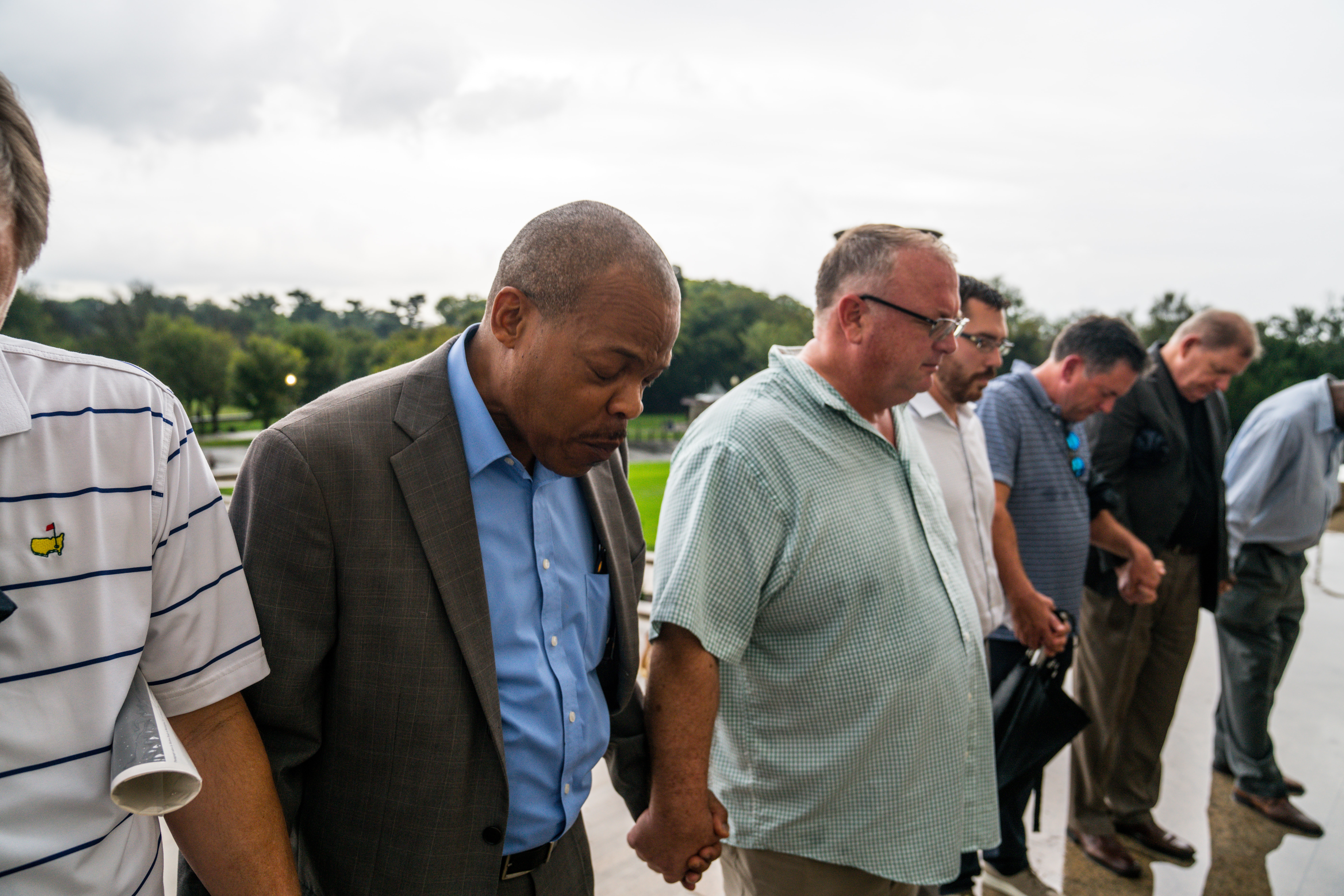How to Honor Christ in a Divisive Age
We live in a divisive time. People are pitted against one another. It is “us vs. them” and we are told that if we don’t agree then we hate each other. How do followers of Christ navigate this contentious world?
A good student of history will tell you that this attitude of hatred for those who don’t agree with one’s position is nothing new to our time here in 2020. It is as old as sin itself.
As followers of Jesus Christ, this shouldn’t surprise us at all. We live in a world deeply damaged by sin. We live in a world where God’s enemies sow dissension and lies and falsehoods to cause division and chaos and hurt. This is antithetical to what God desires – love, grace, mercy, humility, understanding, redemption…shalom.
The mess of our world shouldn’t be something that we wring our hands over, lose sleep from, or fret, worry, and be anxious about. We have a sovereign God who is still God over all. Therefore, as Psalm 46:10 says, we can “be still, and know that I am God.”
The mess of our world shouldn’t be something that we wring our hands over, lose sleep from, or fret about. We have a sovereign God who is still God over all.
As we find ourselves living in what seems to be an ever-increasing fragmenting culture, we know the sin of this world that seeks to divide and destroy makes its way into the church. Like any sin, it is something that worms its way into the souls of people who declare that Jesus is Lord. Lest we throw rocks at those we know who are schismatic, we must remember Jesus’ words: “Let any one of you who is without sin be the first to throw a stone” (John 8:7). It is not our place to sit in judgment.
But how do we best deal with people in the church who are intent on arguing their side and their opinion, with the tenacity of a dog not willing to give up his bone, holding on to the right that they can have their opinion and say anything they want?
As followers of Jesus Christ, do we really have the right to hold onto our own opinions? When we declare that Jesus is Lord, He is the only one who is supposed to guide our thoughts and perspectives on things, and our attitude and reaction toward those things we desire to cling to with clenched fists.
When we declare that Jesus is Lord, He becomes the only one who should guide our thoughts, perspectives, attitudes, and reaction toward those things we desire to hold on to.
So how do we deal with these arguments and with the divisive people in a way that honors God?
The Apostle Paul wrote these words to Titus:
“But avoid foolish controversies and genealogies and arguments and quarrels about the law, because these are unprofitable and useless. Warn a divisive person once, and then warn them a second time. After that, have nothing to do with them. You may be sure that such people are warped and sinful; they are self-condemned” (Titus 3:9-11).
These arguments of Paul’s day about “genealogies” and “quarrels about the law” aren’t things that entice us into quarreling, but we have enough of those ourselves.
Some of the arguments of our day are very important, not only for our society but for the church. But Paul’s comments are not about the topic of the controversy, but about those who feed it with the intention just to divide. There is a difference between someone who loves division and arguments versus someone who humbly longs for the things of God in our world and works toward them with a God-honoring attitude (Ephesians 4:2).
So how does Paul tell us to handle the contentious people who seek to stir up trouble in the church?
Warn a divisive person once,
And then warn them a second time.
After that, have nothing to do with them.
Many of us bristle when we hear this command. It seems hypocritical to separate from conflict-ridden people. But division doesn’t belong in the church. We are called to be united with one another in Christ, even with our differences (Galatians 3:28). In fact, it is something we are commanded to do (Ephesians 4:3).
The purpose of warning them twice, followed by the command to have nothing to do with them, is with the hope of extending grace and redeeming them (2 Timothy 2:25-26). And it is also for the protection of the unity of the church (John 17:21).
But what if we are the divisive person? What if we are the one who is stirring up division and dissension rather than keeping “the unity of the Spirit through the bond of peace” (Ephesians 4:3)?
R. Kent Hughes asks this searching question: “If we love the fight, we must question if we are following God’s priorities. Do we really want to devote our lives to quarreling, criticism, and argument?” (Bryan Chapell & R Kent Hughes, 1&2 Timothy and Titus, p. 365.)
“If we love the fight, we must question if we are following God’s priorities. Do we really want to devote our lives to quarreling, criticism, and argument?” @rkenthughes
Instead, we must confess and repent of our contentiousness. We must seek forgiveness from those we have hurt when we have not demonstrated love, grace, and humility in our interactions with them.
And we must have a change of priorities to seek first the Kingdom and His righteousness in a way that honors God and gives Him the glory as we seek to remain united in Jesus Christ.
Copyright © 2020 Jon Hoekema. All rights reserved.
——————————————————————–
 Jon Hoekema has been pastor at Horizon Community Church in Downers Grove, Illinois since December 2003. Jon is deeply committed to the Word of God, to prayer, and to seeking God’s presence and power. Jon helps lead several local and national ministry efforts, including leading a prayer movement among congregations in the Chicago area with the Christian Reformed Church, and through partnership with The 6:4 Fellowship and Strategic Renewal.
Jon Hoekema has been pastor at Horizon Community Church in Downers Grove, Illinois since December 2003. Jon is deeply committed to the Word of God, to prayer, and to seeking God’s presence and power. Jon helps lead several local and national ministry efforts, including leading a prayer movement among congregations in the Chicago area with the Christian Reformed Church, and through partnership with The 6:4 Fellowship and Strategic Renewal.



